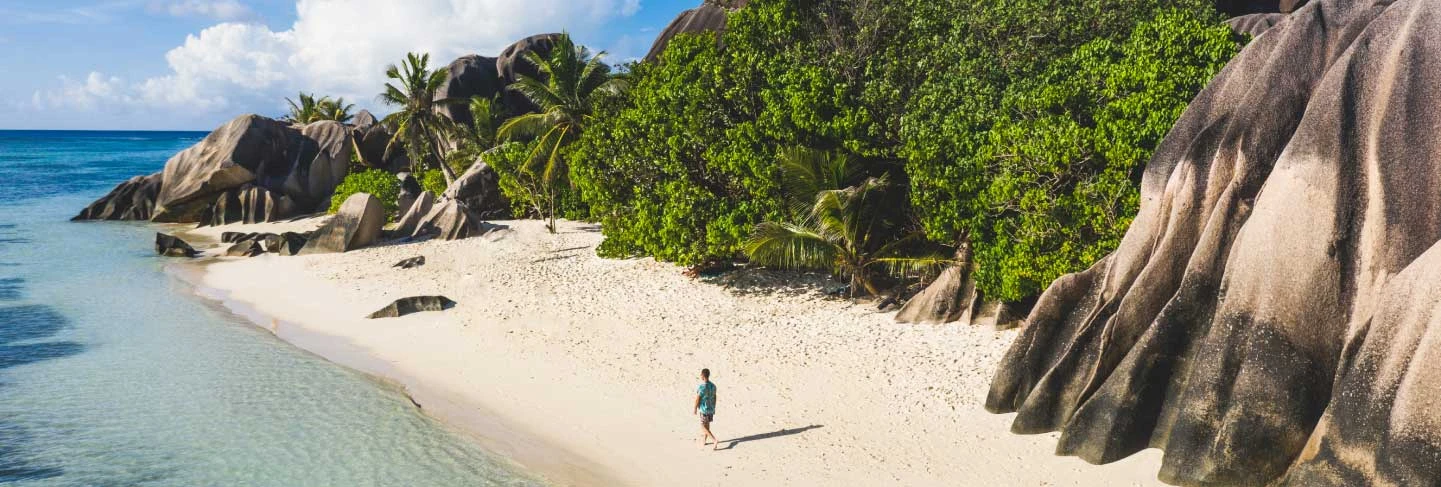
Eight reasons why taking a gap year to volunteer is good for your career
Zaytoen Domingo
Posted: March 25, 2020
Taking a gap year doesn’t mean wasting a year you could have spent studying. Instead, taking a gap year can help you make the right choice for your future studies.
A gap year experience can help you find your passion, which plays an important role when choosing a career path.
One of the best ways to find out what you are passionate about is to volunteer abroad. Volunteering will introduce you to new people, new skills and new lessons to learn.
In this article, you’ll discover how you can find your career path by taking a gap year and volunteering.
1) You’ll gain experience and independence
Taking a gap year to volunteer will open you up to many opportunities. For example, if you volunteer abroad, you will get the opportunity to travel solo.
Your gap year experience will be yours alone, without anyone from home to influence the way you choose to spend your time. This will also teach you how to take responsibility for yourself, which is a great attribute of any employee.
If you take a gap year to volunteer away from home, you will get to experience being by yourself. Alone time can give you the opportunity to learn more about yourself.
The advantage of solo travelling to volunteer? You’ll learn about others by working alongside them. When you take a gap year to volunteer, you are guaranteed to meet and work with a diverse group of people.
Besides personal development from solo travel, another experience you will get from volunteering abroad is work experience. Choosing a career path can be tough if you don’t have any working experience.
How will you know what you’ll be good at if you haven’t tried anything out yet?
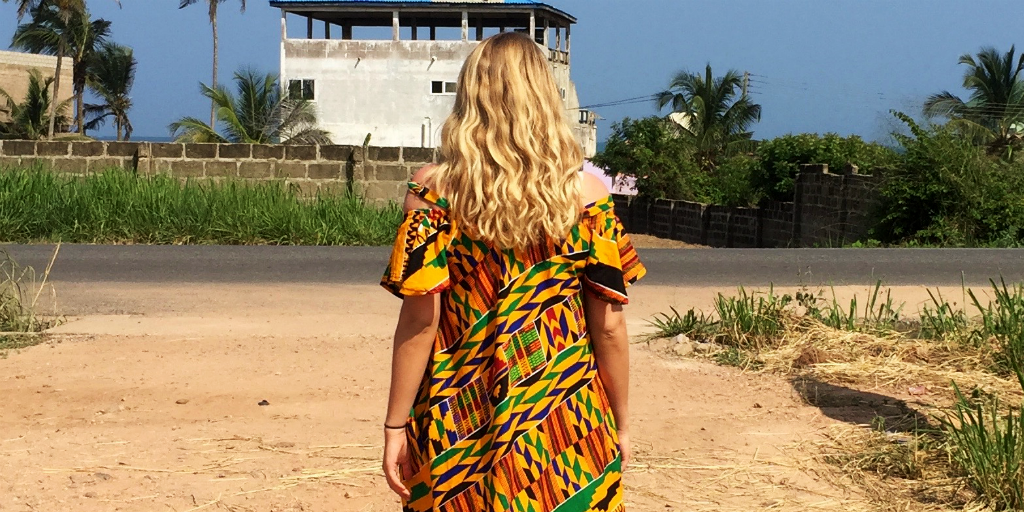
2) Rejuvenate your mind and body
Volunteering is a social act that involves close interaction with fellow volunteers and communities. You will make meaningful connections with the people you work with.
These connections will help alleviate feelings of anxiety and helplessness. Everybody needs a friend.
Volunteering on a wildlife conservation program involves working in nature, which is almost guaranteed to lift your spirits.
Rejuvenating your mind and body is a good stress-reliever that will help you clear your mind when you need to make important decisions, like choosing a career path.
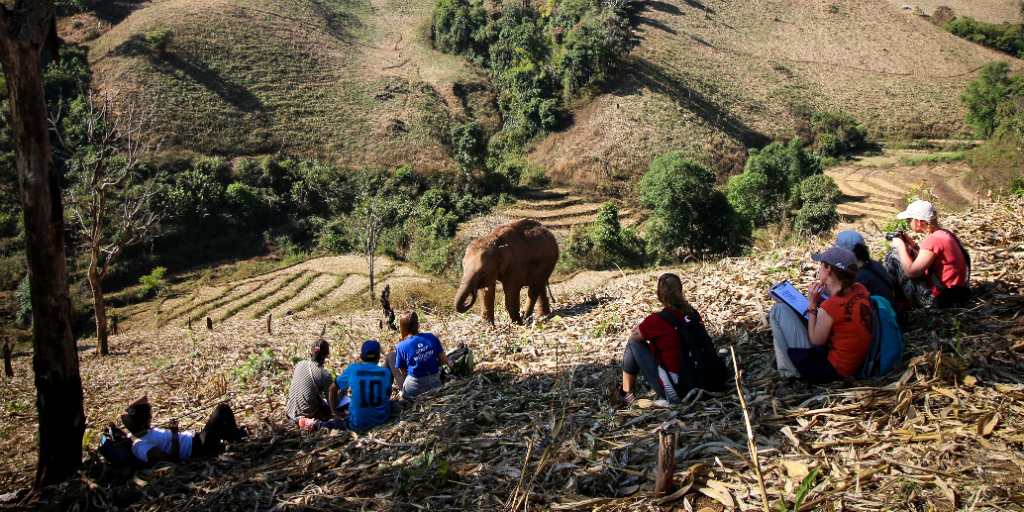
3) You’ll build confidence
You might not be feeling sure of yourself or your future, and that’s okay. You just need to build confidence in yourself.
A great way to do this is to find out what your strengths and capabilities are. Taking a gap year to volunteer will help you do this.
On a volunteer program, you will try things you might never have thought of doing, like ocean diving on a marine conservation expedition.
You’ll meet people from all over the world and have the opportunity to engage with different types of cultures. On a women’s empowerment program in Cambodia, you will live alongside local Cambodians and gain valuable insight into local cultures.
Working and living alongside a community in Cambodia will also give you the opportunity to learn a new language. Did you know multilingualism looks great on a resume?
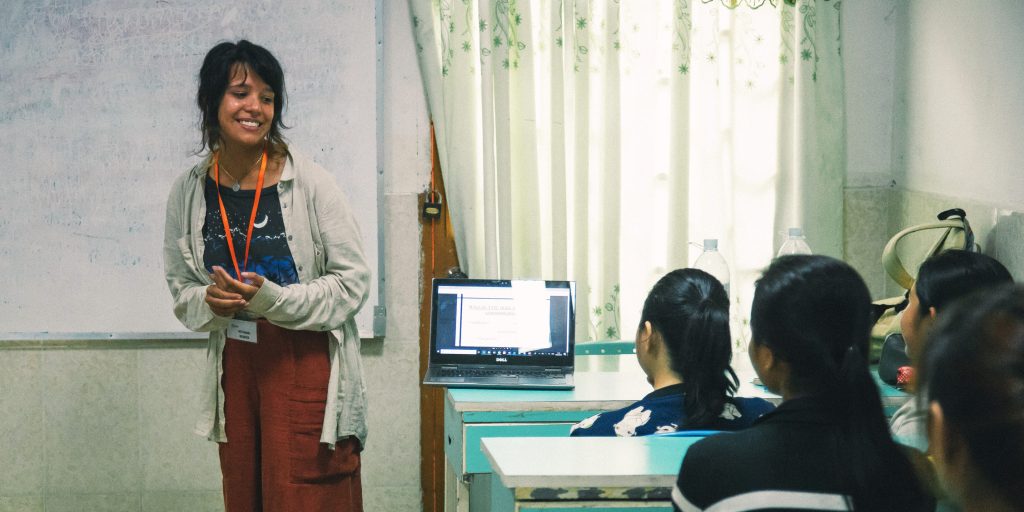
4) You can gain valuable practical skills
A volunteer program will usually involve doing some form of work. A responsible volunteer organisation will provide you with certain skills to do the work.
For example, on one of GVI’s wildlife research expeditions, you will learn to identify wildlife like lions and elephants. You will also learn to track and monitor animals using radio telemetry techniques.
Why would this be important? You gain working experience which will be in your favour when applying for a job, like becoming a FGASA professional field guide.
Even if you decide not to work in the field you have skills in, having a multitude of different skills makes you a well-rounded individual. Having this on your resume will make you stand out from other applicants.
5) You’ll be able to demonstrate hard work
Being well-rounded shows a colourful skillset. It also shows diligence and versatility. Your variety of skills means that you’ve put in the work to earn them.
Companies want to see that you can be good at your job, but that you can also take on other tasks if need be. Being versatile will put you ahead of the rest.
This could even increase your chances of earning promotions.
So how can taking a gap year to volunteer help you achieve this flexibility?
If you volunteer on a global public health program in Thailand for example, you will gain teaching experience and knowledge about everyday health practices. You will also learn how to monitor and plan lessons, which will give you leadership skills.
These skills will give you valuable attributes such as leadership abilities, patience and responsibility towards others.
Another great thing about volunteer work is that you don’t get paid for it. But why would that be great?
Working hard out of your own will show your future employers that you are a dedicated worker. Doing volunteer work shows your willingness to work hard without expecting recognition.
This will prove that your hard-working abilities are sincere, which may encourage a company to invest in you.
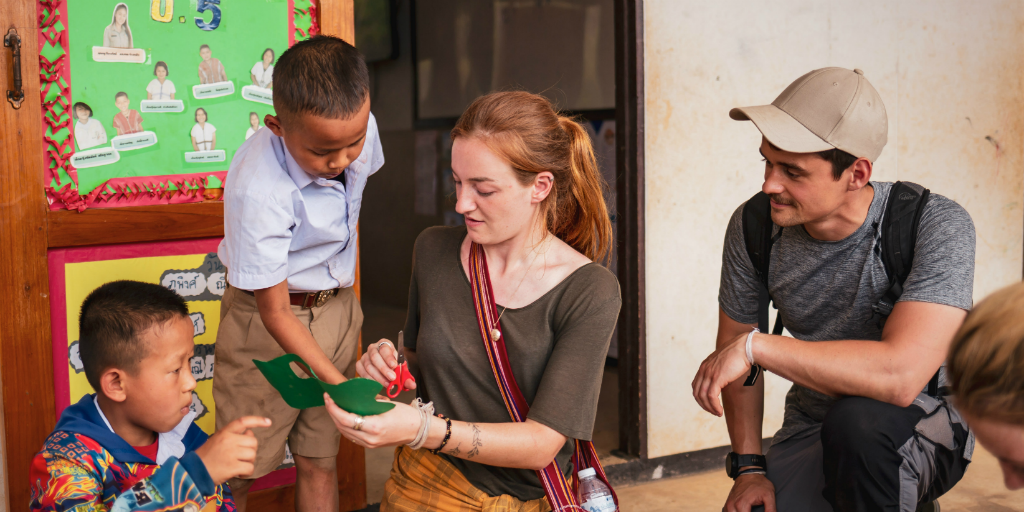
6) You can improve your people skills
University is a great place to meet people, but you are likely to meet people you already know from your high school and around your city.
Taking a gap year to volunteer abroad will allow you to meet new people from all around the world.
You will work alongside volunteers from completely different parts of the world and make life-long, international friendships.
You will also be based in communities with diverse cultures. Living in the community where you do the volunteer work will give you valuable insight into interacting with people from different backgrounds and cultures. This shows that you can be a team player and interact with people from all walks of life.
7) Build a professional network
We’ve spoken about building your individual skills and making valuable friendships with people from around the world. Another important connection you could make during your gap year experience is to build a professional network.
Going to university straight after school isn’t the only way to secure your future career path. As a volunteer, you’ll get to work with a range of professional people, giving you an opportunity to build a professional network.
These professionals include PADI Advanced Open Water Diver qualified instructors on a marine conservation expedition in Fiji, Seychelles, Mexico or Caqalai.
If you’re an aspiring diver, you can learn important practical skills from PADI mentors and ask them for advice on what steps to take toward your future as a diver.
With an organisation like GVI, you will get the chance to interact with global partner organisations too. For example, GVI is partnered with Dawasamu Environmental Movement to work towards the conservation of coastal and marine life.
These vast connections are all opportunities for you to learn from professionals and possibly receive job offers in the future too.
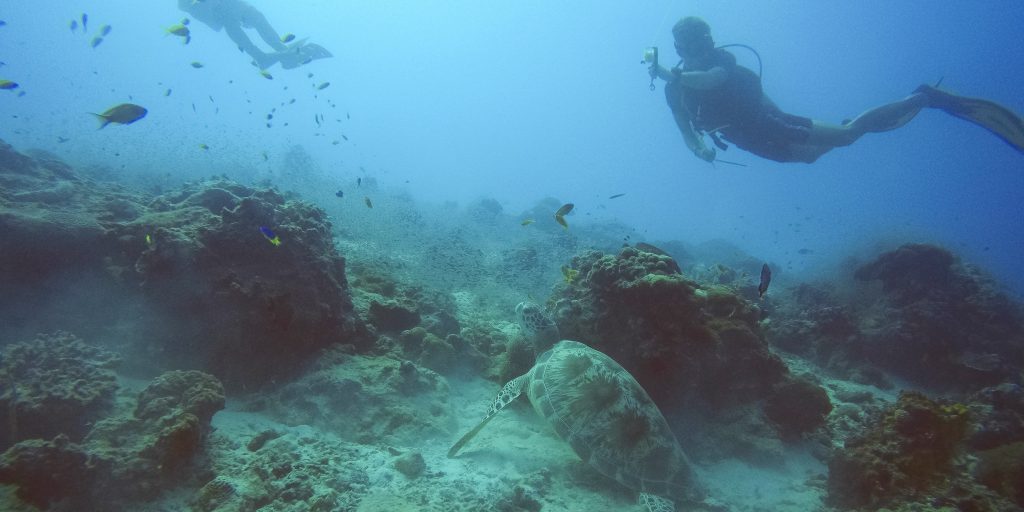
8) Make stress-free choices about your career goal
Making decisions that will influence your whole future can be a big deal. Everyone is different and it’s okay not to have all the answers right now.
This is why it’s important to take a step back and give yourself time to think about your goals. The best way to do this is to allow that time to be stress-free.
Many people decide to study straight after high school. But what most people don’t expect is the sudden change of pace from high school to university.
Universities have thousands of students compared to the 30 people in your class at school. This means lecturers don’t have the time to give individualised support to each student.
As a university student, you have to be able to stand on your own feet. Often, the increase in workload and deadlines alongside less interaction with your lecturers can put a lot of pressure on a student.
Many students burn out — becoming exhausted from the workload — and drop out of their studies. Give yourself time to breathe and reflect.
Taking a year to explore gap year benefits will give you space to decide what you want to do. Gap year experiences will open you up to ideas for choosing a career path that best suits your capabilities.
Consider taking a gap year, and find your career path through volunteer work.
Zaytoen Domingo is an intern at the GVI Writing Academy. The Writing Academy is a skills-development program that pairs development editors with budding travel writers. Learn more about the program here.
By Zaytoen Domingo

